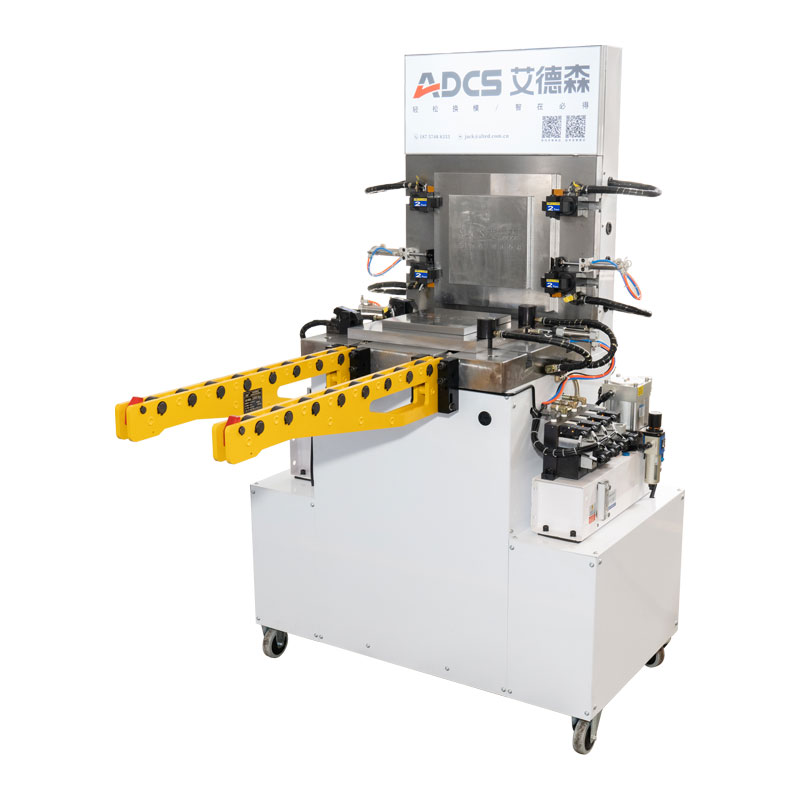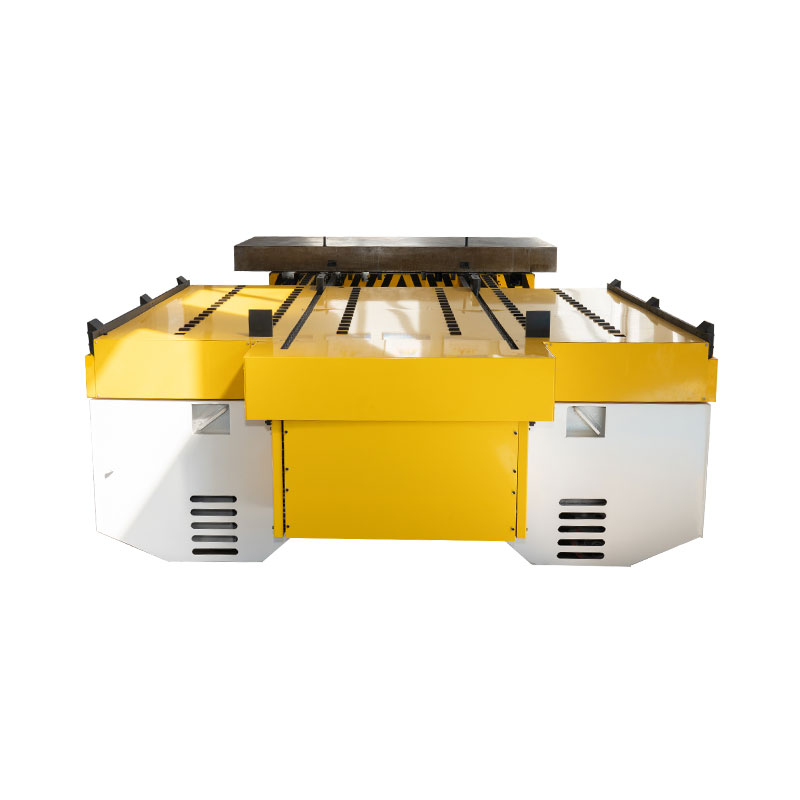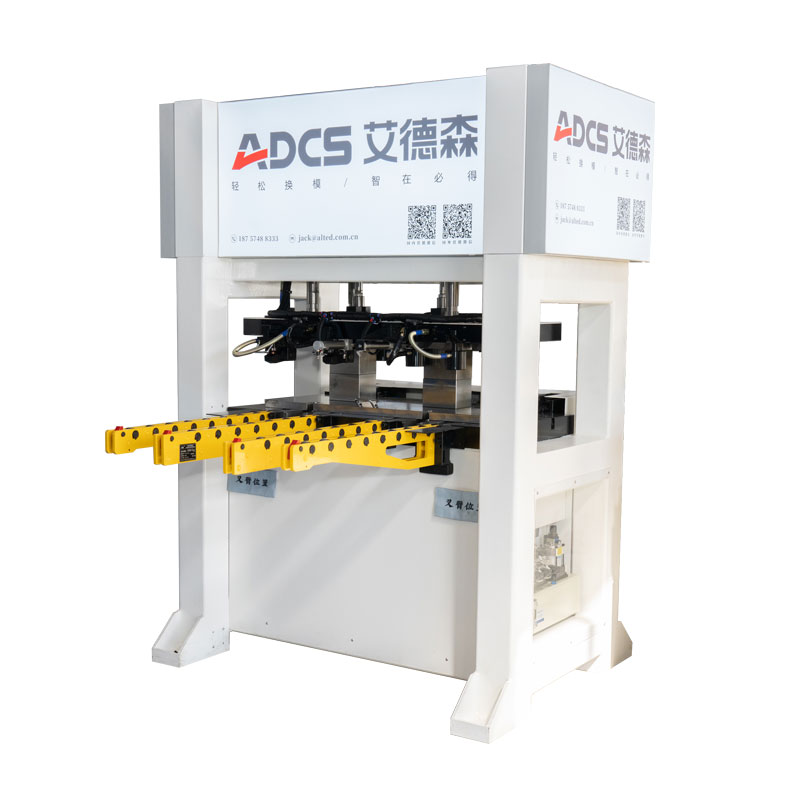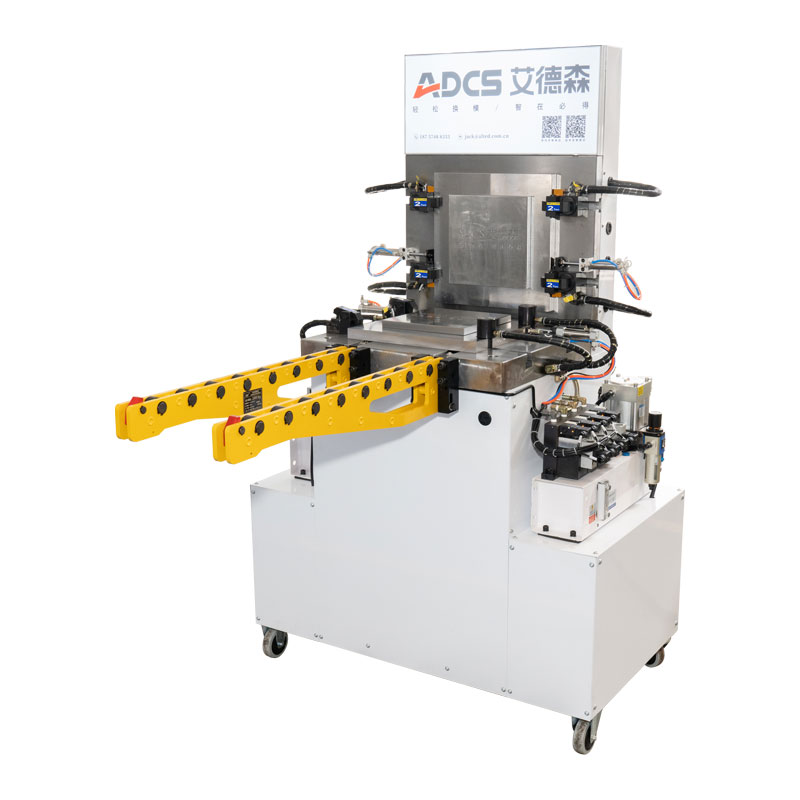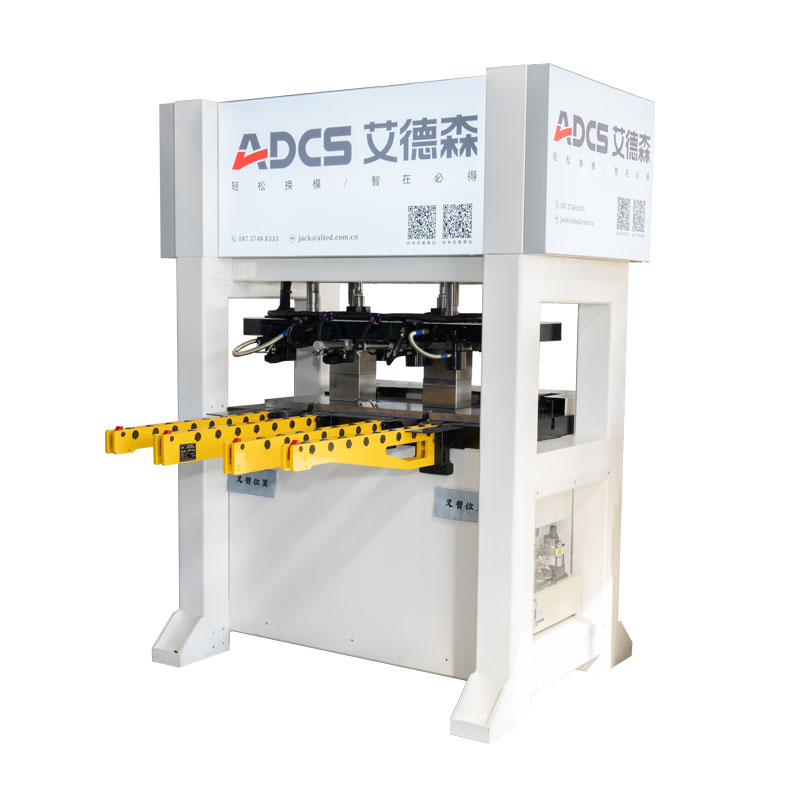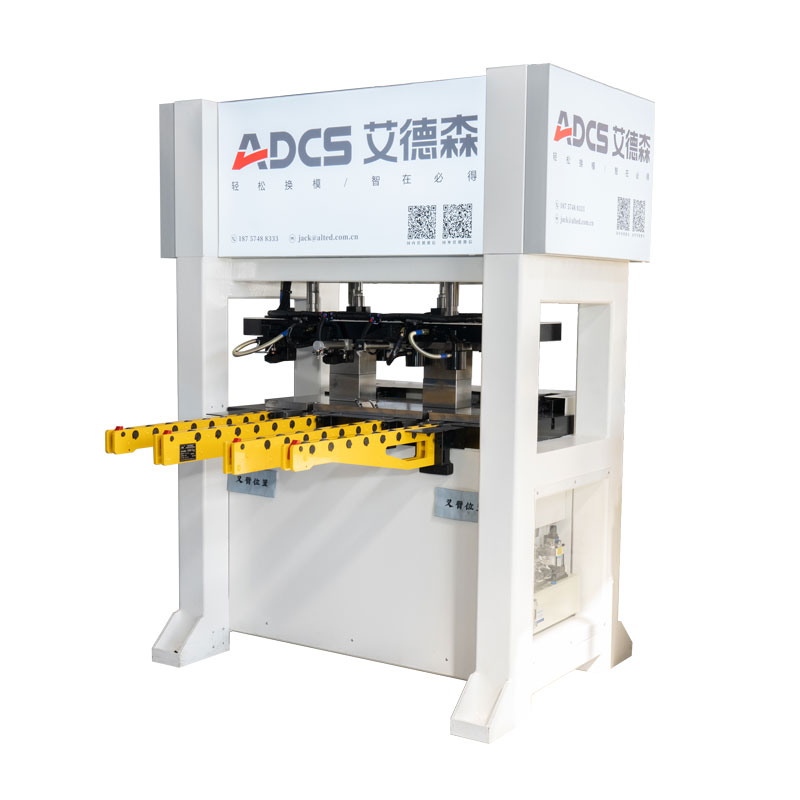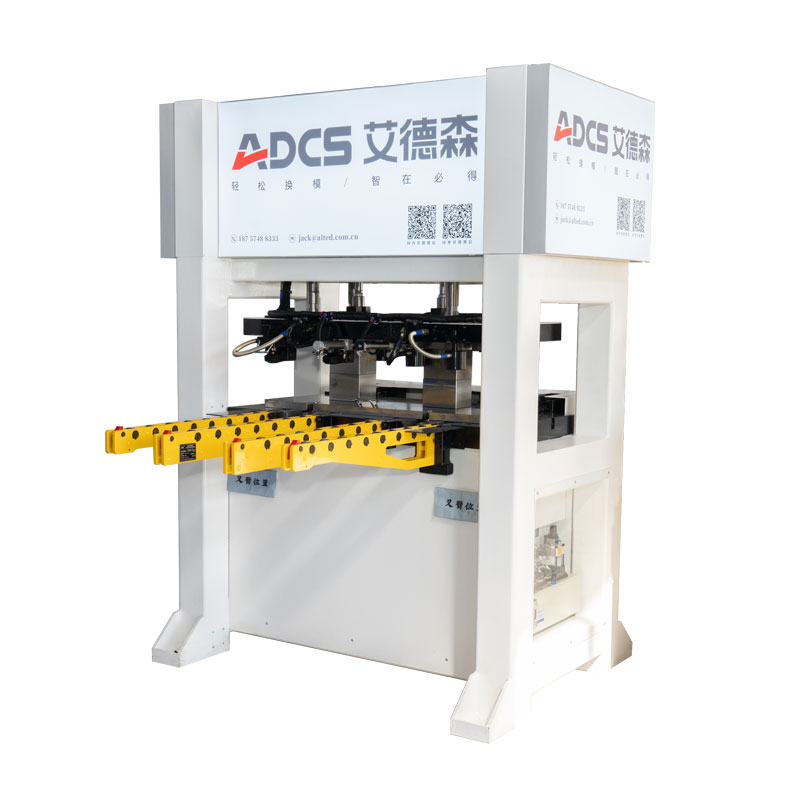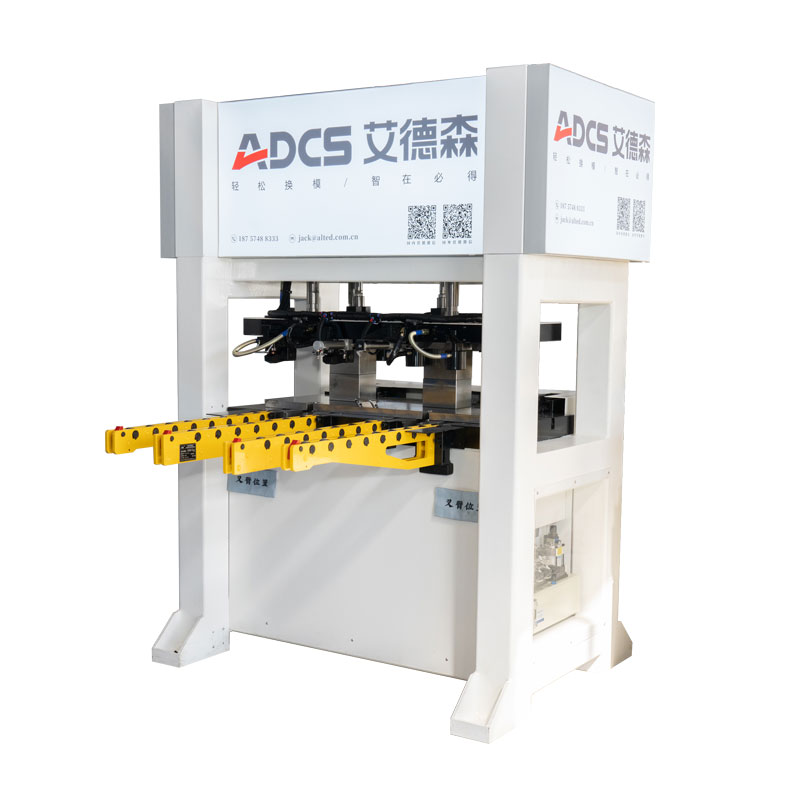Single Minute Exchange of Dies
Send Inquiry
Core Technology
ADCS' Single Minute Exchange of Dies features military-grade alloy jaws that engage the tool in 8 seconds, provide extremely high-quality vertical clamping force, and high repeatability with errors as small as 0.005 mm. Unlike competitors, our ADCS' fully mechanical design prevents dangerous pressure decay during operation. If the clamp detects that it is not fully engaged, the fail-safe interlock system physically prevents the press from starting - a key feature that meets OSHA standards. According to our partners, the maintenance team praises our sealed cartridge design, which is rated to only require lubrication once a year for normal operation. Compared with hydraulic solutions, operating costs are reduced by nearly 60%. Choose ADCS to provide you with the world's leading QDC solution.
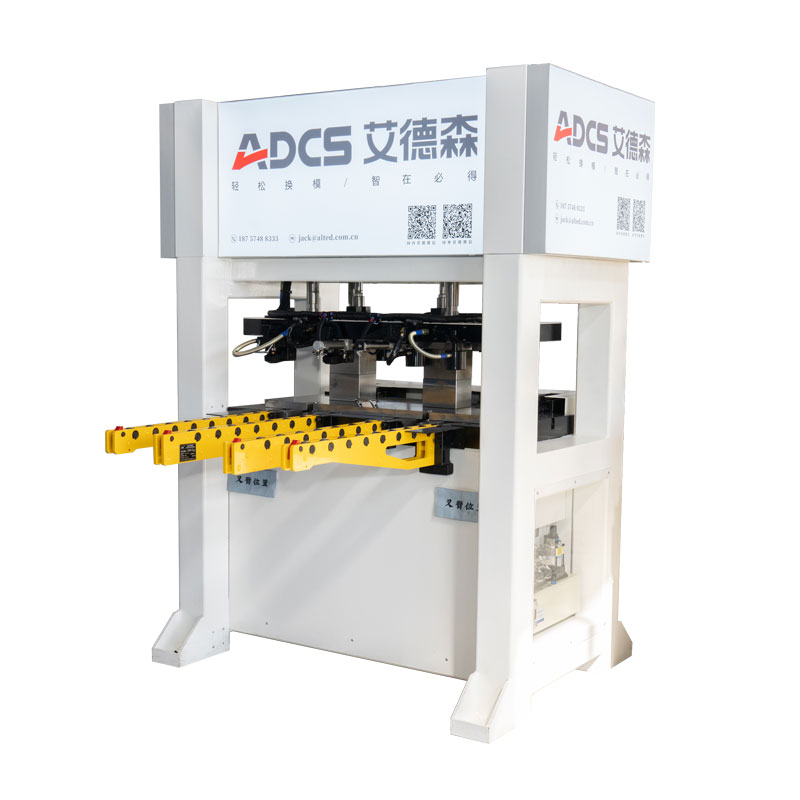
Product Advantages
| Indicators | Traditional mold change | ADCS SMED system |
| Mold change time | 2-8 hours | <10 minutes |
| Average number of mold changes per day | 1-2 times | 10-20 times |
| Equipment utilization | 60%-70% | 85%+ |
| Mold management costM | High (easy to mismatch/damage) | Low (standardized tracking) |
Product Application
Single Minute Exchange of Dies solves the core bottleneck of multi-variety and small-batch production through technological innovation, and has become the infrastructure of flexible intelligent manufacturing of Industry 4.0. Standardized interfaces (such as magnetic clamping and hydraulic clamping) replace traditional bolt fixing, and the mold change time is shortened from several hours to a few minutes, significantly reducing downtime losses.
In the process of communicating with ADCS partners, we learned that the rapid mold change system has been used in the automotive manufacturing field, body stamping lines, doors, hoods, etc.: flexible production of multi-model parts.
Injection molding shell production of home appliances/electronic products such as mobile phones and electrical appliances, responds to rapid switching of multiple models to meet market iteration needs. In the aerospace field, titanium alloy/composite material molding: small batch mold change efficiency of high-value parts is improved.
In the field of metal processing, sheet metal stamping, chassis, hardware, etc.: adapt to multiple batch orders and reduce inventory pressure.
As a key technology to improve production efficiency in the manufacturing industry, it is particularly suitable for production lines with frequent mold changes such as stamping, injection molding, and die casting.
 English
English Español
Español Português
Português русский
русский Français
Français 日本語
日本語 Deutsch
Deutsch tiếng Việt
tiếng Việt Italiano
Italiano Nederlands
Nederlands ภาษาไทย
ภาษาไทย Polski
Polski 한국어
한국어 Svenska
Svenska magyar
magyar Malay
Malay বাংলা ভাষার
বাংলা ভাষার Dansk
Dansk Suomi
Suomi हिन्दी
हिन्दी


